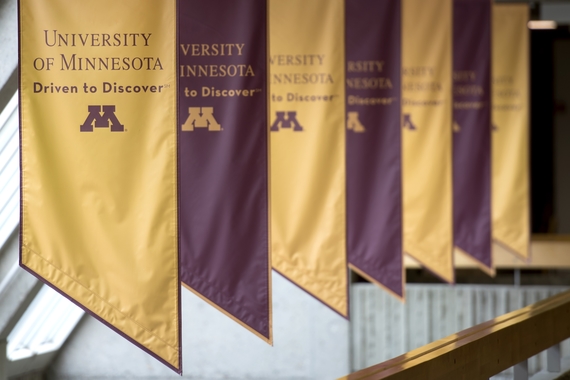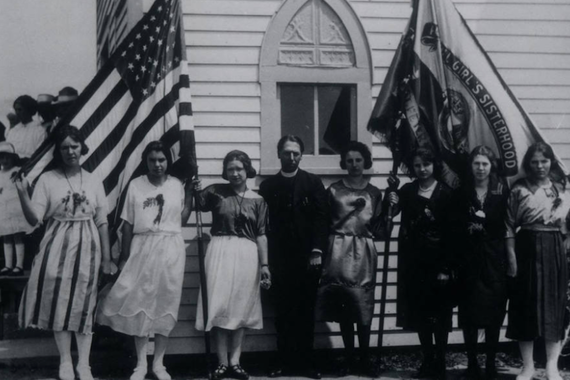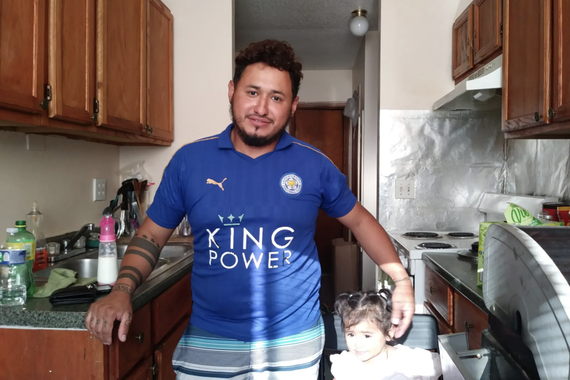Meet Tom Gitaa
Tom Gitaa, the president and publisher of Mshale — the longest serving African newspaper in Minnesota — will be joining us as a panelist at the Afromigrancy: History and Memory workshop in April.
Gitaa, a native of Kenya, has spent decades covering the immigrant and refugee African communities in the state. In the early 2000s, Gitaa served as the host of the Talking Drum on the African Broadcasting Network, a national satellite service. On the show, he interviewed some of the most renowned African leaders, including Wangari Maathai, an environmental political activist and the 2004 Nobel Peace Prize Laureate.
At the Afromigrancy event, Gitaa will discuss his decades-long experience around documenting and preserving the stories of African migrants in the state — and across the country.
As part of a series of interviews with invited Afromigrancy speakers, the Immigration History Research Center (IHRC) asked Gitaa to reflect on his mnemonic strategies and techniques. Here is the conversation:
IHRC: Writing one’s own short bio can be an exercise in record-creation. Please describe yourself in a way that you want the general public to know who you are and what you do.
Gitaa: I’m a news publisher, entrepreneur, businessman and advocate of minority-owned businesses. A graduate of the Minnesota State University system, I’m the founder of Mshale Newspaper which serves the news and culture needs of the African immigrant community. I’m also the founder of the African Awards. I’m a proud husband and father.
IHRC: L.P. Hartley, a British novelist, once said, “The past is a foreign country.” Do you agree with this pronouncement? When looking back to account for details of what happened during your or family’s journeys to this country, does your or family history of migration appear foreign to you?
Gitaa: I don’t personally agree with Hartley’s pronouncement given my circumstances and personal experience and journey to America. My journey here was not unique as I came as an international student straight from a high school in Mombasa, Kenya. Many other Kenyans had done the same in years past (starting as early as former president Obama’s father) and after my coming and continue to do so. Not being refugees or asylees, many of us that came as foreign students have family back home and have over the years went back and forth. Myself in my 29 years in America, I visit Kenya on average every two years and family from there visits here quite often too. A little different from a refugee for example whose country might have left nothing for him/her to go back too so they can become disconnected and thus their former country might seem foreign as they become immersed in their new country. Myself, I have had the privilege of staying connected with most developments in my native country, both good and bad, although I am not an uncritical lover of Kenya.
IHRC: What specific conditions or circumstances in the present cause you to recall memories of your homeland in unexpected ways?
Gitaa: Large family gatherings in America are few and far between and sometimes non-existent. Whenever my family here or other extended family and friends from Kenya are able to pull together a large gathering of family, I always recall how such happenings are a given on a regular basis back in Kenya. Yes, there would be special occasions that would entail larger family gatherings but large family gathering to celebrate even what one might consider mundane did not take a lot of coordination as it does here. They just seemed to happen, whether in an urban setting and guaranteed in the rural setting.
IHRC: If you could take one book -- or one enterprise story -- with you to 2076, the year of the United States Tricentennial, the dawn of the fourth century of the founding of the United States, what would be your choice? The book, of course, does not have to be written in English.
Gitaa: That book will be Native Son by Richard Wright. The book was part of my high school syllabus and by high school I mean the “A” level part of high school or “Advanced” level.
During my time in Kenya we followed the British system of high school which was four years (“O” level or ordinary level) and a further two years (“A” level or Advanced levels). The final two years, not everyone went as it was a sifting method of seeing who could go to college after that, and it involved specializing in three core subjects plus one minor one subject. “A” level’s intense method of instruction is equivalent to freshman year in the American system.
If you were in the liberal track of the A level as I was, it entailed a lot of intense writing especially if one of your subjects was Literature in English as was the case for me. So for my Literature in English one of the books our school had chosen for instruction and eventual national examinations testing was Native Son.
By my final year of “A” level I was pretty set in wanting to go to the United States for my college and not the local university, but Native Son had me quite concerned on whether the America portrayed in that book is where I really wanted to go to.
IHRC: Let’s say you have been given an opportunity to contribute to a time capsule project to offer future historians raw materials from the past (also known as primary sources) so that they can engage in the craft of historical research and writing about Afromigrancy. The container of artifacts and records will remain sealed and stored safely for 100 years (until 2119) in the basement of the Elmer Andersen Library under the stewardship of the Immigration History Research Center Archives. Choose five items you would donate from your personal, family, and community collections to this project.
Gitaa: A photo of my blended family in America. I was a widower for ten years and raised my two biological children as a single father for ten yeas until they were in their teen years and then remarried. I married a woman who also had children so we blended our two families. It does not happen often with our African immigrant families so I would put a photo in the time capsule showing our blended family.
Other materials would include:
- My naturalization certificate. I would have included the photo of me holding it from the swearing-in that I lost during a move (digital backups were not as common in the early 2000s).
- Something to do with Ilhan Omar [the first Somali-American elected to Congress] and the history. Probably my Facebook Live few minutes interview of her at the Capitol after being sworn in as the first black person born in Africa to be elected to Congress. I believe that video is the first one of her after the ceremonial swearing-in. A few minutes later she was being interviewed by the national media.
- A copy of Mshale — probably the February 2019 edition or December 2018 edition that show the Metro area of Minnesota for the first time electing a mayor born in Africa (Liberia) when Brooklyn Center elected Mike Elliot as its first black mayor who happens to be born in Liberia.
- A video and photo of Kofi Annan’s last visit to the United States at Macalester College and Books for Africa a few months before his passing.


